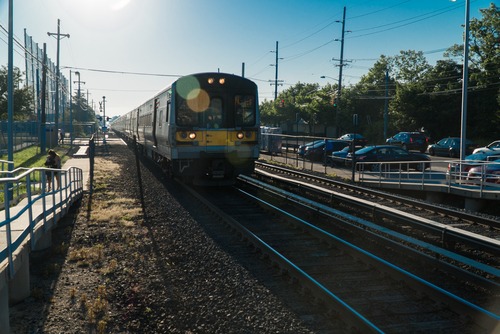
A notice of proposed rulemaking (NPRM) issued Monday by the U.S. Department of Transportation’s Federal Railroad Administration (FRA) would update the agency’s procedures for waivers and safety-related proceedings.
The NPRM seeks to clarify the petition process so that petitions seeking regulatory relief are aligned with the agency’s safety and public interest priorities, according to the FRA.
“FRA’s waiver procedures are designed to ensure that regulatory relief is granted in limited and specific circumstances that create benefits for railroads and the public — such as by advancing innovation, supporting workers, or strengthening infrastructure — while improving safety,” said FRA Administrator Amit Bose.
“This proposed rule will help ensure that petitions for regulatory relief meet FRA’s safety standards and align with the agency’s policy priorities to advance the development of a safe, efficient, and resilient American rail network,” Bose added.
The FRA proposes to define both the “in the public interest” and “consistent with railroad safety” components of the statutory standard that it must use for evaluating whether to grant waiver or suspension requests, according to the NPRM.
Specifically, the FRA proposes that the phrase “in the public interest” signifies not only how a proposal for regulatory relief may improve railroad operations, but also that they serve the public interest by empowering workers, ensuring fairness, protecting the environment, or creating robust infrastructure amongst other possible positive factors, the NPRM says.
Requests for waivers and suspensions must also demonstrate that they are “consistent with railroad safety,” which would be defined as resulting in railroad operations that are at least as safe as or safer than without the proposed relief.
Additionally, the FRA is proposing to require petitions for regulatory relief to include evidence of meaningful consultation with stakeholders, saying that it has found that petitions for waivers frequently don’t address the potential impacts of their requests on key stakeholders — notably rail workers and communities along a railroad’s right-of-way — leading to extensive work to fill this gap after a petition has been filed, according to the NPRM.
The proposed rule would streamline the process by requiring railroads to proactively consult and coordinate with appropriate stakeholders most impacted by their requests and submit documentation to FRA.